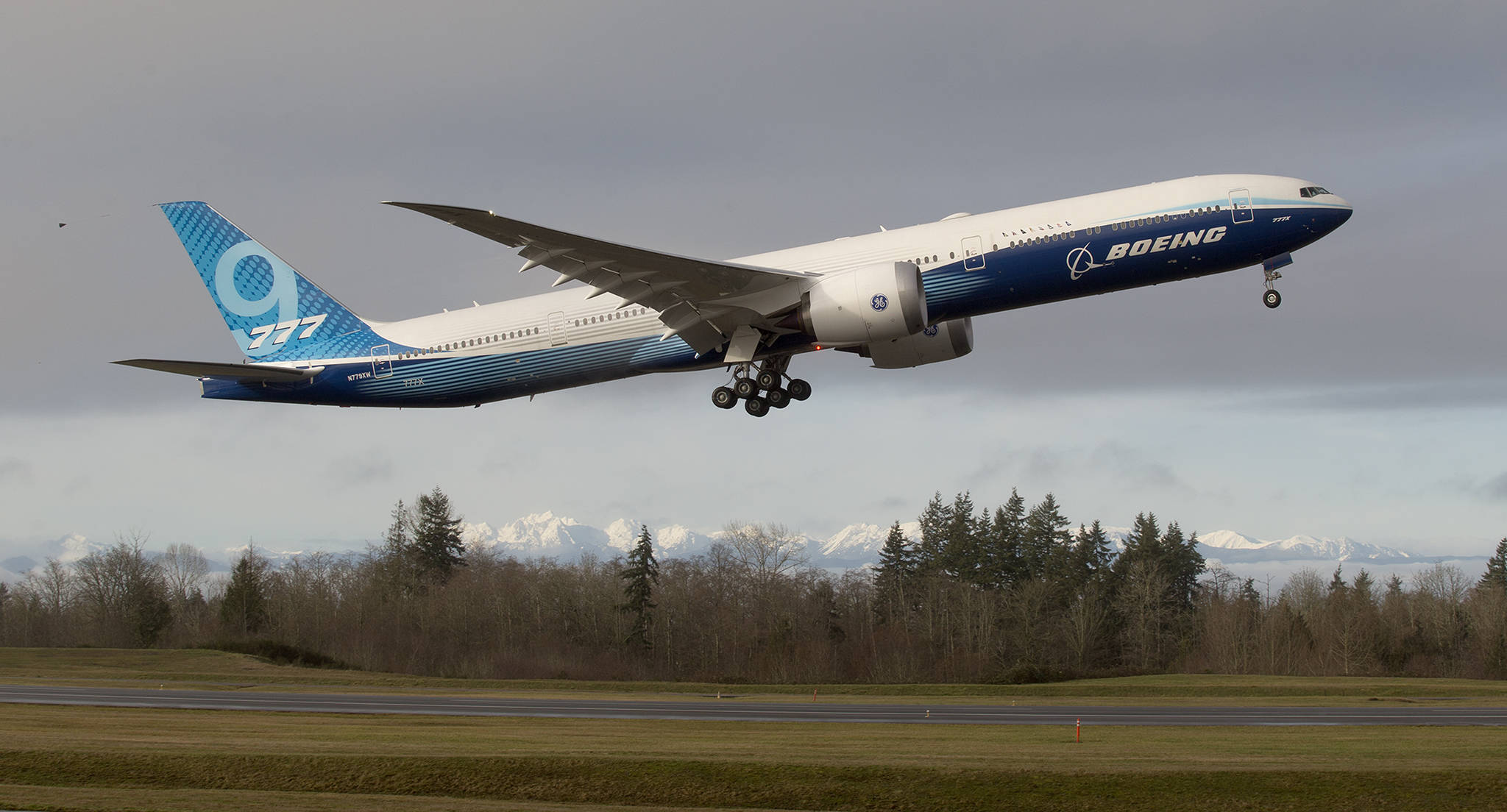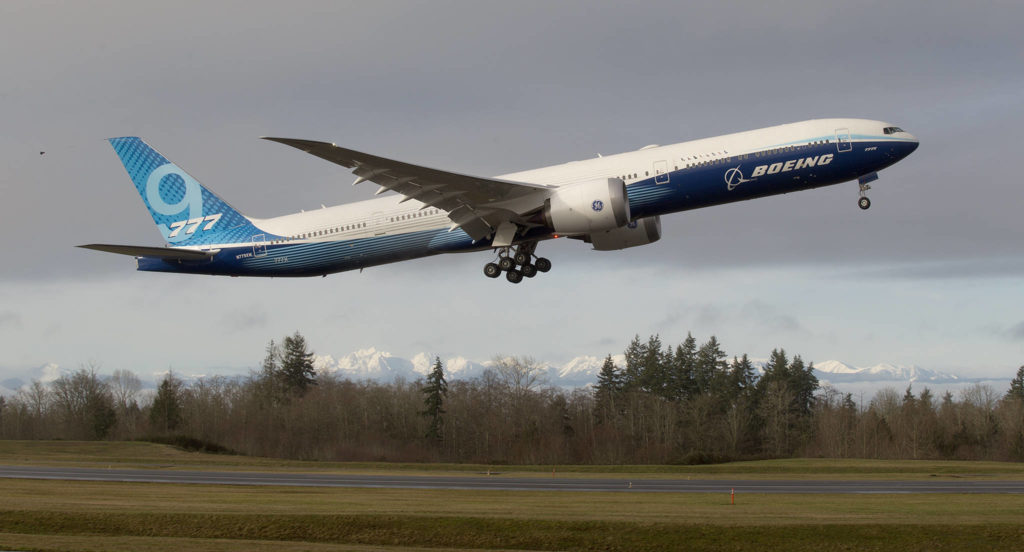By David Koenig / Associated Press and Herald staff
For the world and for the aerospace industry, “2020 was a year like no other,” Boeing Co. CEO David Calhoun said Wednesday during a fourth-quarter earnings conference call.
In response to the COVID-19 pandemic and huge declines in airline travel, the Chicago-based airplane manufacturer in 2020 shed thousands of jobs, began to consolidate production of the 787 passenger jet in South Carolina and reduced real estate holdings in an effort to cut costs.
Still, Boeing lost $8.4 billion in the fourth quarter of 2020 — capping a record $11.94 billion loss for the entire year — as the pandemic undercut demand for planes. The company also announced on Wednesday another costly delay to its new large Everett-built jetliner, the 777X.
Over the past two years, Boeing’s huge losses have been mostly because of the crisis around two deadly crashes involving the Renton-built 737 Max. However, the biggest piece of the fourth-quarter loss reported Wednesday was a pre-tax charge of $6.5 billion tied to the 777X, a larger version of the long-range 777 that will feature new engines and composite wings. The 777 and the 777X are built at the company’s sprawling assembly plant at Paine Field.
Boeing attributed the latest 777X delay to new, tougher standards for certifying planes — an outgrowth of the 737 Max crisis — and the damage that the pandemic is doing to international travel.
Calhoun said the company now anticipates that the first 777X delivery will occur in late 2023, three years behind the original schedule and a year later than Boeing announced just six months ago.
“This schedule, and the associated financial impact, reflects a number of factors, including an updated assessment of global certification requirements, our latest assessment of COVID-19 impacts on market demand, and discussions with customers with respect to aircraft delivery timing,” Calhoun said in a letter to employees.
During the conference call, Calhoun said that Boeing plans to make “prudent design modifications” to the 777X based on “lessons learned from our experiences on the 737 Max program recertification.”
Those modifications will include changes to the plane’s actuator control electronics — a critical part of the flight control system — and other items that reflect “our current judgment of global regulators compliance” standards, Calhoun said.
Revenue in 2020 fell 15% to $15.3 billion as the company delivered fewer planes to airline customers.
Orders for new Boeing jets have tanked in the past two years, first from the worldwide grounding of the Max after the two crashes that killed 346 people, then from the pandemic’s economic havoc. In the last few months, production flaws have halted deliveries of the 787 Dreamliner, which has been built in Everett and North Charleston, South Carolina.
Boeing delivered 59 commercial planes in the fourth quarter, compared with 225 for European rival Airbus.
The 737 Max, a mid-size plane used mostly on short and medium-range flights, only recently returned to flight after being grounded worldwide for 20 months. Five carriers, including American Airlines, have resumed using the Max and have flown more than 2,700 flights since early December.
This month, Boeing avoided criminal prosecution over the Max by agreeing to pay $2.5 billion and admit that two former employees misled regulators about the plane’s safety. Family members of passengers who died complained about the settlement amount, most of which Boeing had already set aside to pay airlines.
As reported last year, Calhoun on Wednesday reiterated that production of the 787 at the Everett campus will end in March and be consolidated at the company’s assembly plant in South Carolina. Also as previously reported, the company expects to reduce global employment to 130,000 by the end of this year through workforce reduction and attrition. Last year, Boeing eliminated nearly 13,000 employees in Washington through involuntary layoffs and two rounds of voluntary departures.
Calhoun said he and other experts don’t expect the airline industry to return to 2019, pre-COVID levels for another two or three years. International travel, which has fallen off a cliff, isn’t expected to revive until 2025.
Shares of Boeing stock fell 4% to close Wednesday at $194.03.
Herald writer Janice Podsada contributed.
Talk to us
> Give us your news tips.
> Send us a letter to the editor.
> More Herald contact information.


























